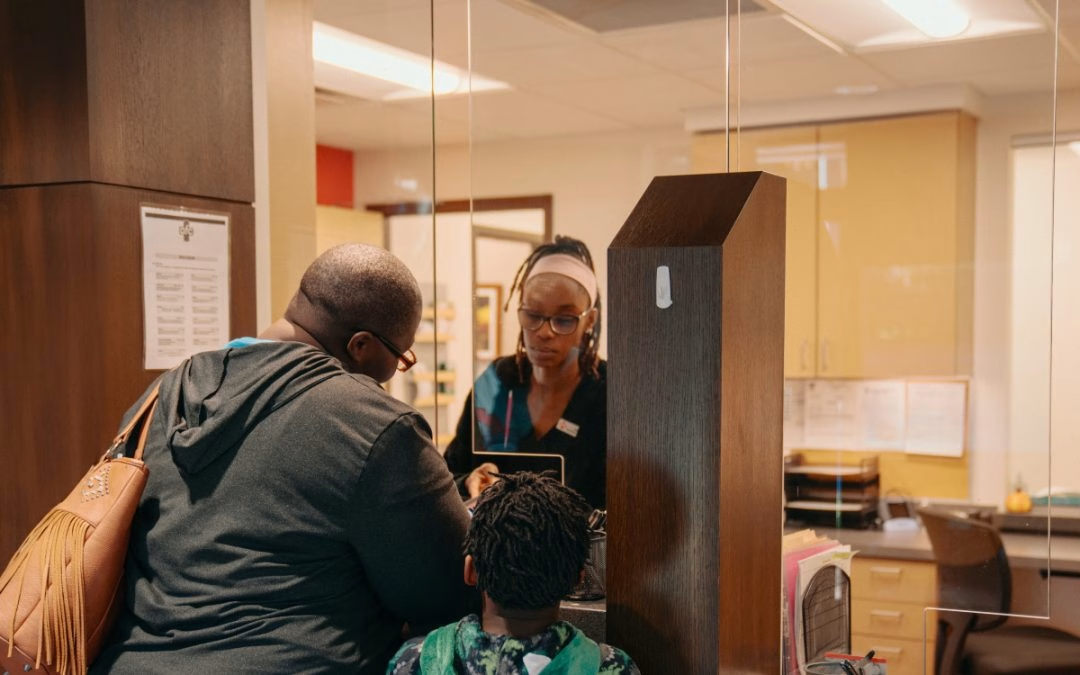
Recovering from walking pneumonia? Learn what to expect, how to support healing, and when to seek care at urgent care near you, today!
Walking pneumonia, while typically mild compared to regular pneumonia, can still take a toll on your body. Recovery often requires patience and proper care, even if symptoms seem manageable. Understanding what to expect during your recovery can help you regain your health effectively.
In Sevierville, TN, winter recovery can still include scenic drives through the Smokies or quiet moments in the local community. Knowing what to expect during walking pneumonia recovery ensures you take the right steps toward feeling better.
How Long Does Recovery Take?
Walking pneumonia recovery varies depending on factors like age, overall health, and the severity of the illness. For most people, recovery can take anywhere from one to three weeks, but some symptoms, like fatigue or a lingering cough, may persist for longer. Without proper treatment, the illness could stretch out for weeks or even lead to complications.
What Are the Key Phases of Recovery?
Recovery from walking pneumonia typically progresses through these stages:
Initial Symptoms Ease
Once you begin treatment, whether antibiotics for bacterial causes or supportive care for viral cases, you’ll likely notice a reduction in fever and chest discomfort within a few days. However, fatigue and coughing may linger.
Energy Gradually Returns
Fatigue is a hallmark symptom of walking pneumonia, and recovery often includes a slow return of energy. Pushing yourself too hard during this phase can prolong recovery, so listen to your body and rest as needed.
Lingering Cough Resolves
A dry cough may persist for several weeks, even as other symptoms fade. Staying hydrated and using over-the-counter remedies like cough suppressants can help manage this symptom.
How Can You Support Recovery?
While walking pneumonia doesn’t usually require hospitalization, proper self-care is crucial for a full recovery. Here’s how you can support your healing process:
Prioritize Rest
Give your body time to recover by limiting strenuous activities. This doesn’t mean you have to be bedridden, but overexertion can worsen symptoms or delay recovery.
Stay Hydrated
Drinking plenty of fluids helps thin mucus in your lungs, making it easier to breathe and reducing coughing. Warm beverages like tea with honey can also soothe your throat.
Follow Your Treatment Plan
If your doctor prescribed antibiotics, take the full course as directed, even if you start feeling better. Stopping early could allow the infection to return or become resistant to treatment.
Ease Into Normal Activities
As you begin to feel better, gradually reintroduce daily activities. Light walking or gentle stretches can help improve circulation and boost your energy levels without overtaxing your body.
Use Over-the-Counter Remedies
Medications like acetaminophen or ibuprofen can reduce fever and relieve minor discomfort. Avoid using cough suppressants excessively, as coughing helps clear your lungs.
When Should You Seek Further Medical Care?
While most cases of walking pneumonia improve with home care and treatment, certain signs may indicate complications or the need for medical attention. Contact your healthcare provider if you experience:
- A high fever that doesn’t resolve or worsens
- Persistent or severe chest pain
- Shortness of breath or difficulty breathing
- A cough producing yellow, green, or bloody mucus
- Extreme fatigue that interferes with daily life
These symptoms could signal worsening pneumonia or complications like pleurisy (inflammation of the lung lining).
Staying Healthy After Recovery
Preventing future respiratory infections is key once you’ve recovered from walking pneumonia. You can reduce your risk with these simple strategies:
- Practice Good Hygiene: Wash your hands frequently and avoid touching your face to prevent the spread of germs.
- Boost Your Immune System: Stay active, eat nutrient-rich foods, and get enough sleep to keep your body resilient.
- Avoid Smoking and Irritants: Smoking and exposure to lung irritants can increase the risk of recurrent respiratory issues.
- Get Vaccinated: Annual flu shots and other vaccines can protect against respiratory infections that could lead to pneumonia.
Why Visit AFC Urgent Care Sevierville?
Recovery from walking pneumonia can be a slow process, but timely medical care ensures you’re on the right path to healing. At AFC Urgent Care Sevierville, we provide expert evaluations, treatments, and follow-up care for walking pneumonia and other respiratory illnesses. With on-site X-ray imaging and lab testing, we can quickly diagnose your condition and create a personalized recovery plan.
Take care of your health this winter to fully enjoy the beauty of Sevierville, TN, from the Smoky Mountains to the charming local attractions. Visit AFC Urgent Care Sevierville today—no appointment necessary!


